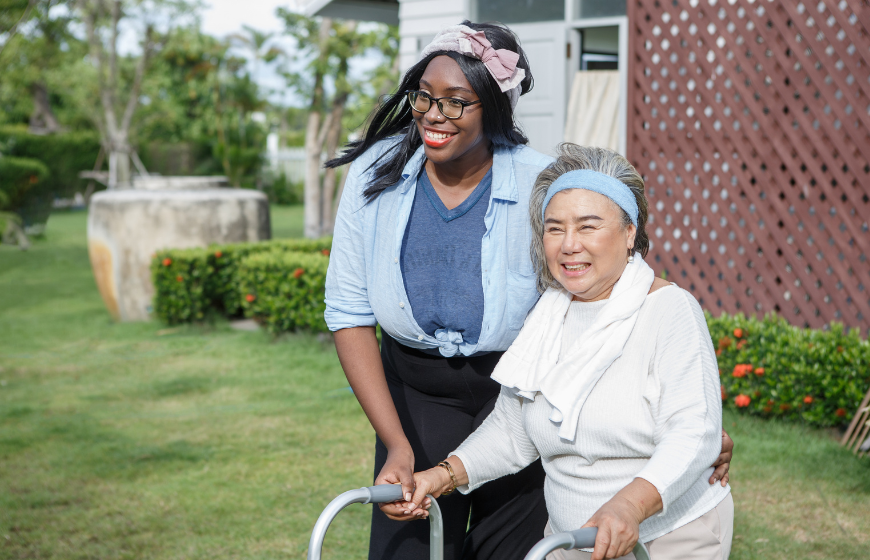Money is not always a popular subject of conversation among families, but it is an important one. Without the right resources, quality care is not a reality. We spoke to Financial Adviser, Paula Brancato, at Northwestern Mutual to better understand how Financial Health changes through the lifespan. She gives our readers some recommendations on how best to prepare.
Mia Ross, RN: Many families wait to discuss finances with an aging loved one until it’s too late and funds are out of reach. When do you recommend families start this discussion? Is it ever too late?
Paula Brancato, MBA, CLTC, CFP® : As with most lifestyle transitions that affect the well-being of an individual, a family or a business, it is never too early to start discussing and planning for long term care. Whatever your age, please start now! Even those in their 20’s and 30’s who may not be immediately concerned about their loved one’s care, will want to speak with their parents and grandparents to be sure they have plans in place. Otherwise, a long term care event is likely to occur when children are in college and they themselves are in peak expense years. It’s a terrible thing to have to decide between what to give one’s children and what to provide for one’s parents. Early planning can prevent that.
To be fair, this transition has taken us all by surprise. It seems obvious that if science extends our lives, long term care costs will rise as well. Long term care costs are, paradoxically, a problem of progress! No one was prepared for the rapid, dramatic increases we are seeing now both in numbers of patients, years of care needed and costs. Long-term care planning, which was once a low priority, is now critical to maintain the health of family or a business. It is not just families that can be torn apart by a long term care event. Businesses, employees and the community also suffer.
That being said, it is never too early and never too late — there is ALWAYS something we can do to help, as long as the client is willing to have the discussion.
Mia Ross, RN: That’s great information. And you’re right– care giving is not cheap! What are the most important steps in assuring clients have the funds to cover their care in late life?
Paula Brancato, MBA, CLTC, CFP® : This is similar to planning and saving for retirement in that the sooner you start taking action, the more resources, tax advantages and options you will have when a long-term care event occurs. Since these costs are currently growing at about 7% per year, it is impossible — without taking a lot of risk on your investments and having a lot of luck — to simply save enough in a side fund to take care of the cost of care. There are three ways to pay for long-term care:
1. Medicaid which is for those in poverty or willing to impoverish themselves and which does not pay for assisted living and most home care.
2. Cash out-of-pocket with few tax advantages, no inflation protection and no leverage. You bear all of the cost.
3. A tax-advantaged long term care policy of some sort. Uncle Sam will help you foot the bill for such plans. Options may be as simple as a new life insurance policy to replenish funds when a family spends out of pocket for a loved one. Or they can be as complex as long term care insurance or a combination product in a trust structure paid for by a business. It is not worth quibbling and over-planning here. Any action you take will be helpful.
Mia Ross, RN: Here at Alliance, we understand that Financial Health and Physical Health are intertwined. Can you paint us a picture of what Financial Health should like for the older adult?
Paula Brancato, MBA, CLTC, CFP® : Financial health for an older adult, means saving enough in a disciplined way that you can retire at the lifestyle you desire, protect your assets, your family and your business and leave a legacy to charities and/or those you love. For one client this may mean investing in his or her business and then having a successful exit strategy so the family can benefit. For others this may include building up cash in company retirement plans and or annuities. One thing never changes: the clients I have seen who do best later in life are those who are optimistic but responsible. They expect the best, prepare for the worst and keep the trusted ones in their lives informed so their plans can be executed effectively.
Mia Ross, RN: Thank you so much, Paula. This was very informative.
If you or someone you love needs to discuss Financial Health, please contact our trusted referral partner, Paula C. Brancato, at her office (212) 819-1800 ext. 6605 or on her cell (310) 429-5181. For more information, check out her other posts for Northwestern Mutual:




